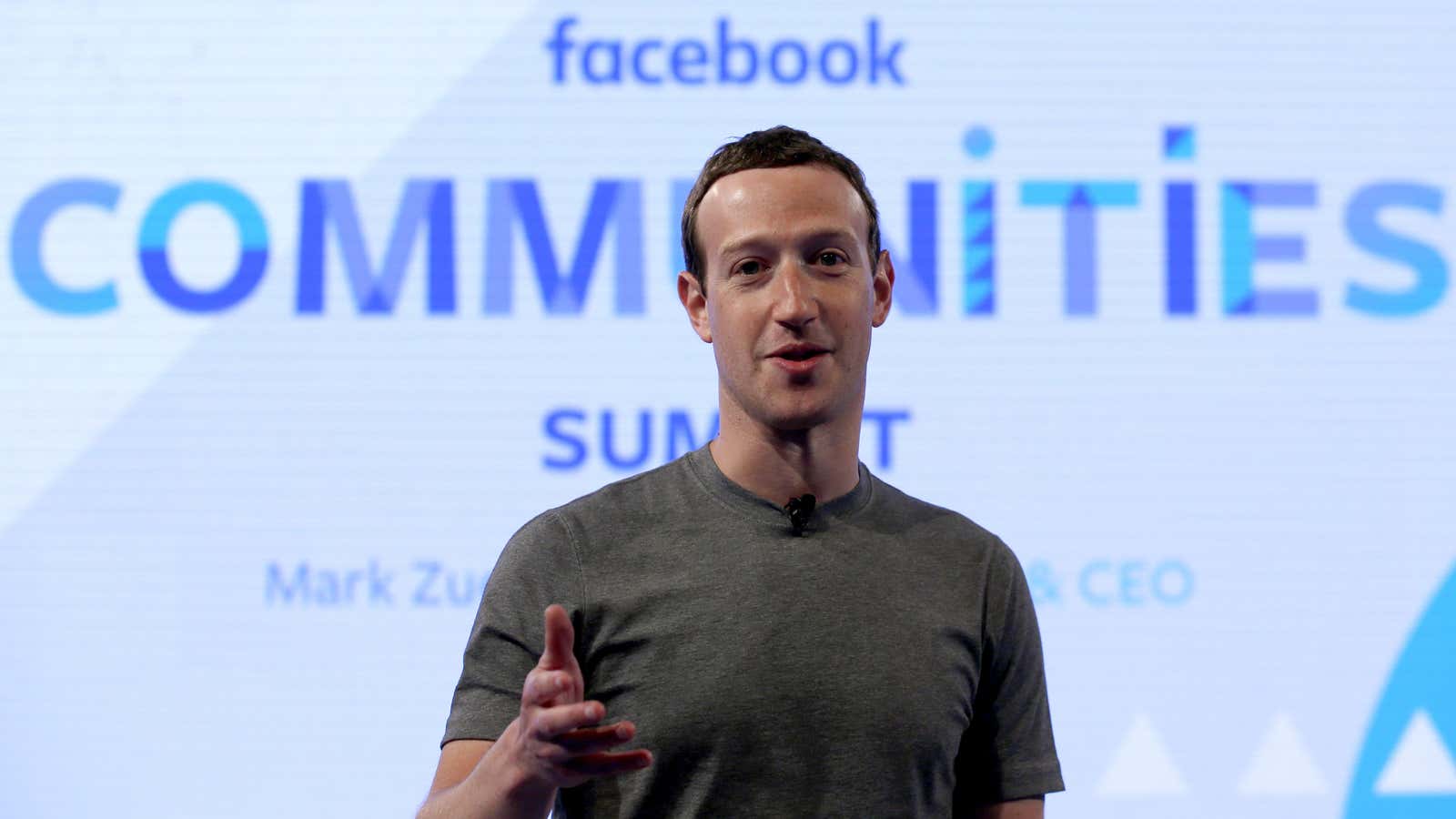As millions of Jews around the world were breaking their Yom Kippur fast, Mark Zuckerberg was posting on Facebook. “For the ways my work was used to divide people rather than bring us together, I ask forgiveness and I will work to do better,” he wrote.
In the midst of his religious awakening, Zuckerberg faces increasing scrutiny by governments around the world for Facebook’s lack of oversight and privacy as malicious misinformation is laundered through its advertising platform. Today, the company will turn over to congressional investigators 3,000 advertisements linked to Russia that are suspected to have targeted US voters during the 2016 presidential election.
American legislators have turned a blind eye to Facebook and other Silicon Valley darlings for the last decade, seeming to be willfully ignorant of the tech’s outsized influence as well as the evolving landscape of antitrust issues. A New York Times review found that 50 other countries have passed legislation trying to rein in how internet companies and users interact. European Union members have been especially hawkish on regulating internet companies, finding Facebook guilty of breaking data protection rules and imposing fines for allowing hate speech on the platform.
Russian influence during the 2016 election could be a turning point for the US congress. Democrats wrote to the Federal Election Committee last month with a plea to regulate online political advertising through social media, eyeing potential for misinformation in the 2018 midterm elections. Today, internet companies do not need to reveal who purchases advertisements on their platforms, unlike television stations and print publications. The FEC has said it’s seeking comment for possible regulatory changes.
Zuckerberg has announced Facebook will now build tools for users to see who is paying for political advertisements in an attempt to get in front of looming regulation.
